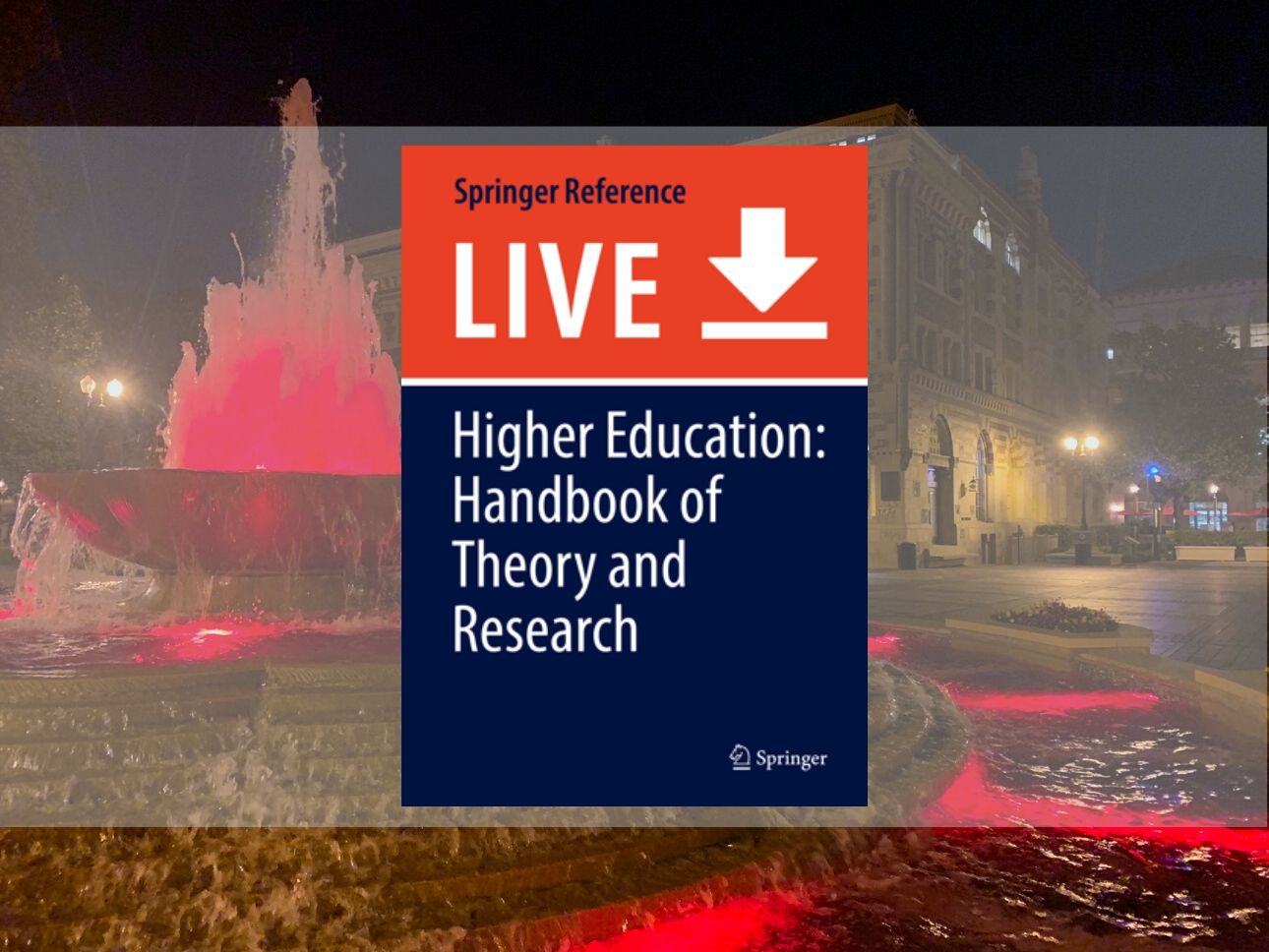
Posselt and Team Author Chapter on Evaluation and Decision-Making in Higher Education
What are the hidden rules and practices that affect who gets respect and opportunities in higher education? How can we reconstruct these rules to encourage equity in the system? A new chapter in the Higher Education: Handbook of Theory and Research book series by Julie Posselt and a team at the Pullias Center takes a hard look at these fundamental questions and suggests how evaluation and decision making can be leveraged for equity.
Julie Posselt, Theresa Hernandez, Cynthia Villarreal, Aireale Rodgers, and Lauren Irwin from the USC Rossier School of Education have contributed a major review, “Evaluation and Decision Making in Higher Education: Toward Equitable Repertoires of Faculty Practice.” Hernandez, Villarreal, Rodgers, and Irwin are research assistants at the Pullias Center, where Posselt is a faculty member. The chapter proposes evaluation and decision-making as activities which can be leveraged to change which students, scholars, and knowledge receives access, opportunities, recognition, and status in higher education.
“Faculty have more potential than they may realize for shaping patterns of stratification in higher education,” notes Posselt, USC associate professor of education who also directs the California Consortium for Inclusive Doctoral Education and the Inclusive Graduate Education Network Research Hub. “Through both ad hoc judgments and formal systems of review, they make assessments of quality and worth through which resources of various sorts are distributed.”
The authors critically review seminal theory and advance a new framework for equitable evaluation and decision-making in higher education. They also consider the relevance of this framework in four functional areas of faculty practice: admission of graduate students, hiring, peer review, and curriculum and instruction.
“By drawing attention to the role that evaluation and decision making play in specific areas of practice that affect knowledge-production functions of the academy, we hope to move scholars and practitioners toward awareness of how their practices reproduce or challenge longstanding inequities, and toward adoption of more inclusive, equitable repertoires of practice,” states Posselt. “We greatly appreciate the opportunity to share our insights and perspectives through this book series.” Posselt has created a downloadable summary of the chapter to serve as an overview, and the full text is available now through Springer.
The “Handbook,” as it is known, has been published annually since 1985. For 35 years, this series has provided a compendium of thorough and integrative literature reviews on a diverse array of topics of interest to the higher education scholarly and policy communities. Each chapter provides a comprehensive review of research findings on a selected topic, critiques the research literature in terms of its conceptual and methodological rigor, and sets forth an agenda for future research intended to advance knowledge on the chosen topic.
Volume 35 was edited by Laura W. Perna, Centennial Presidential Professor of Education at the University of Pennsylvania Graduate School of Education, who has worked with the Pullias Center on previous projects.
Read Laura Perna’s reflection on the 25th anniversary of the Pullias Center. Sign up for our newsletter to receive updates from The Pullias Center.